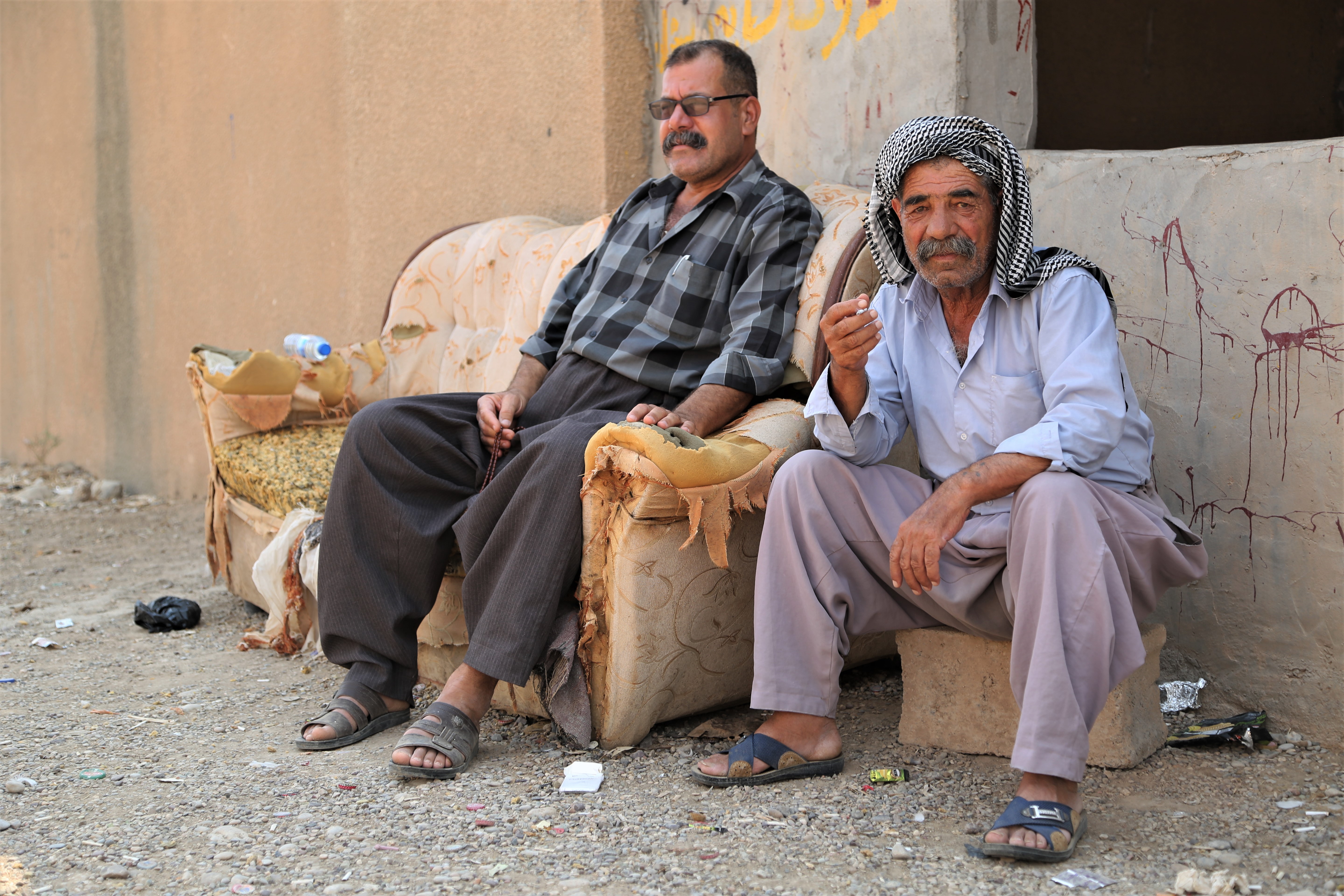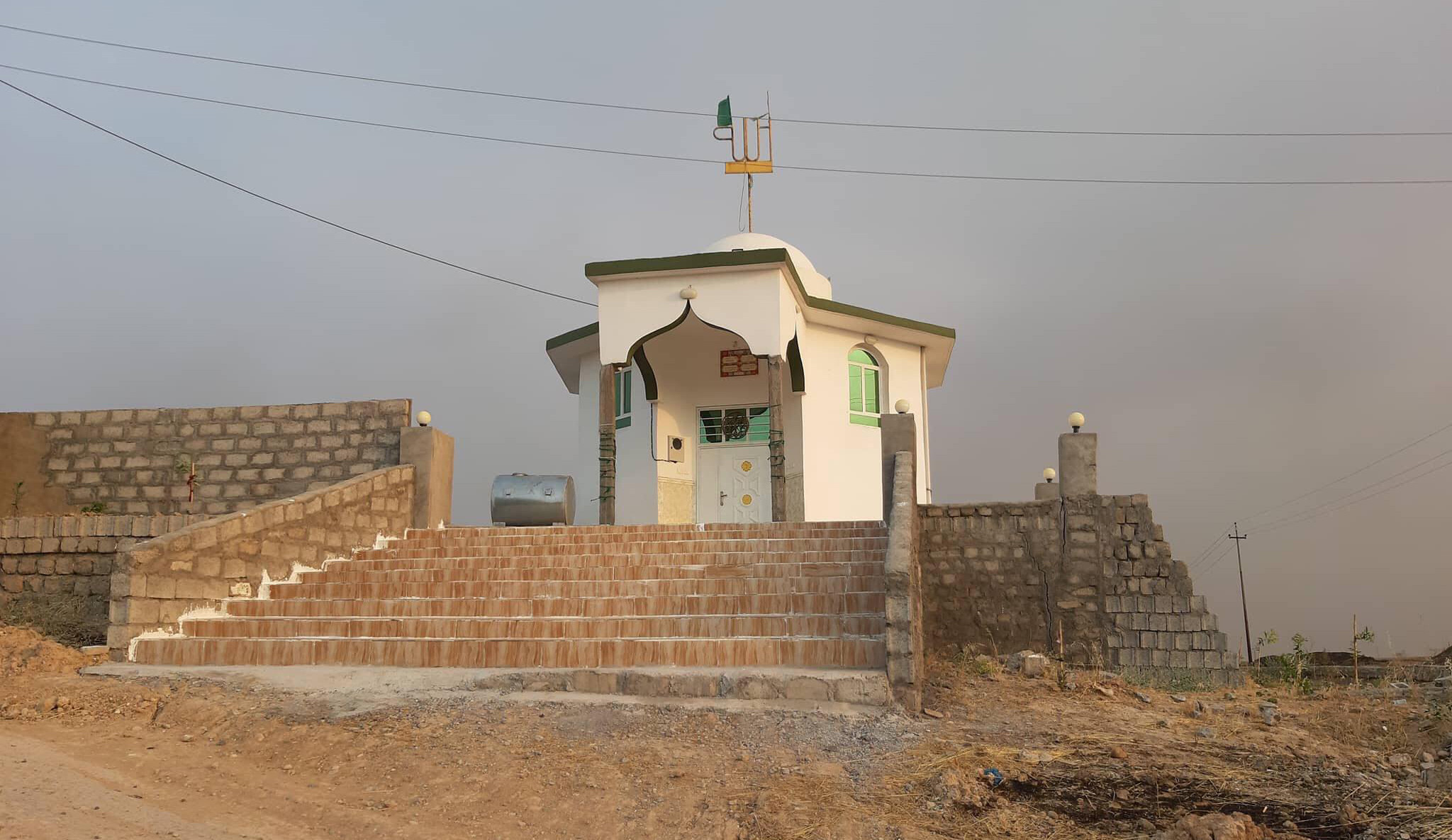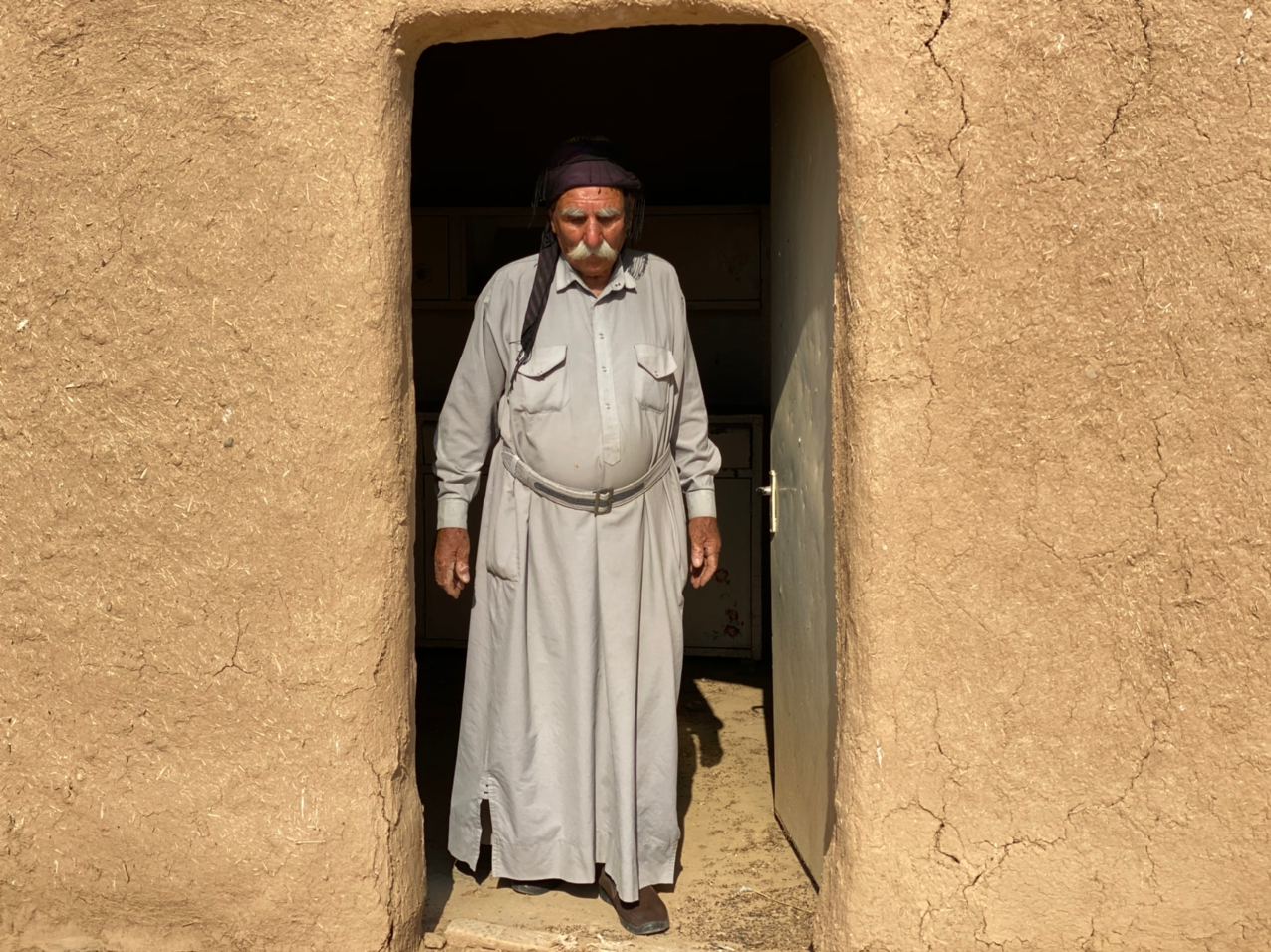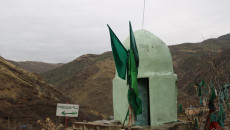The Kaka'is run for the provincial council elections in Iraq with eight candidates in three provinces and within the framework of two political parties, without having a quota seat.
Kakai candidates for the elections are participating on the lists of the Kurdistan Democratic Party KDP and the Patriotic Union of Kurdistan PUK, the two leading Kurdish political parties, four of them in Kirkuk Governorate, three in Diyala Governorate, and one candidate in Nineveh Governorate.
“I assure you, even if we had 80 candidates instead of eight, if all of them got seats, they would be of no use to us because they are affiliated with the (political) parties,” says Nawzad Muhammad, a Kakai resident of Kirkuk.
Muhammad talks about the "dispersion" of the Kaka'is and believes that they are lost. He told KirkukNow, "We are lost because we have not decided if we are a sects, clans, or tribe. If the Kaka'is make their decision, then they will be able to participate with a list of their own, and their size and the number of votes of their voters will become clear."
“Unless we define ourselves well, we will not have independent candidates. Sometimes we say that we are sectarian, and at other times we say that we are a clan or tribe... There are those who intimidate people under the pretext of preserving the secrets of the religion, and the Kakai individual does not dare to say that we are religious,” according to Muhammad.
The Kaka'is are also known as "Ahl al-Haqq" and "Yarsan". They have their own religion, but it has not been officially recognized in the Iraqi constitution, while the Law on the Rights of Components in the Kurdistan Region stipulates that the Kaka'i religion is recognized like other religions.
Unless we define ourselves well, we will not have independent candidates
Kaka'i or Yarsanism is a monotheist spiritual religion that has no special places for worship. Its history dates back to adventure of humanity. It is mostly practiced by 100,000 followers in Iran and Iraq, mainly in the northern provinces of Sulaymaniyah, Kirkuk, Erbil, Nineveh, up to Diyala in the middle of Iraq.
Nawzad's dissatisfaction stems from the fact that many other religious components present in Iraq were allocated quota seats in the provincial councils and the house of representatives (parliament), while the Kaka'is were deprived of this privilege, with the exception of the Halabja Provincial Council, which has not yet been formed.

Zanqar Kaka’i village in Daquq district, Kirkuk, 2020.KirkukNow
According to the election law, the Christian minority has four seats in the provincial councils, the Faili Kurds two seats, the Sabean Mandaeans two seats, and one seat each for each of the Ezidis (Yazidis) and Shabaks.
Masoud Mulla Parviz, a Kaka’i candidate on the KDP list in Kirkuk, told KirkukNow, “There are several reasons that led to the multiplicity of Kaka’i candidates, including partisanship and internal conflicts, in addition to the special interests of some who claim behind the scenes that they represent the Kaka’is.”
The Kaka'is sought more than once to allocate a quota seat to their component in the provincial councils, the Iraqi parliament, or the Iraqi Kurdistan Parliament, but their efforts yielded nothing.
“We have not determined our affairs like other components in order to have a quota seat allocated to us, or to have our own entity and not have to resort to other parties, so in this way we will not be able to rely on the votes of Kakai voters in order to win seats because they are dispersed,” according to Mullah Parvez.
We have not determined our affairs like other components
According to (KirkukNow) follow-ups, only one Kakai candidate out of the four candidates in Kirkuk Governorate is on the PUK list, and he is called Hijran Agha, while the rest are participating on the KDP list, and they are Masoud Mulla Parviz, Mam Yawar and Adnan Kamel.
KDP has two candidates in Diyala (Khanaqin), Avan Azad and Hanan Asadullah, along with a candidate from the PUK, Sabah Karim, while there is one Kakai candidate in Nineveh Governorate on the list of the PUK, Muhammad Jassim.
“The Kaka’is are distributed on the lists of the Patriotic Union and the Kurdistan Democratic Union. We have a few independents,” Muhammad Jassim told (KirkukNow).”
“Even if we participate with independents, it is difficult for them to obtain a sufficient number of votes, even though the multiplicity of candidates disperses our votes.”
He believes that presenting more than one Kaka'i candidate on one list aims to "steal the votes of the Kaka'is" and not for a candidate from the component to win.
Despite the continuous presence of Kakai candidates within the lists and entities, they failed to win the votes that would qualify them to win seats in parliament, and in the last electoral term for the Iraqi parliament, they succeeded in winning two seats for the governorates of Kirkuk and Nineveh within the framework of the lists of the KDP and PUK.
“Our biggest problem is the existing division. Some see themselves as a clan and others as a religious sect, and this is what prevents us from having independent candidates and obtaining quota seats,” said Laila Sadiq, a Kaka’i resident of Daquq district, south of the Northern, Oil-rich city of Kirkuk.

One of the Kaka’i religious shrines in the Nineveh Plain after its reconstruction, Nineveh, 2019. Exclusively for (KirkukNow).
“Now we are divided between two parties and they are putting the interests of the parties ahead of the interests of the Kaka’is,” she believes.
There are 18 Kaka’i shrines across Iraq, seven of them located in Kirkuk province. The most famous of them are: sayyid-Ibrahim Shrine in Baghdad and the sayyid-Baba Yadgar Shrine in Iran, which most Kaka'is visit to pray for curing diseases and fulfilling their wishes.
Kaka'i shrines in Hawar village of Halabja are Shah-Khoshen, Sayyid Khamosh, Meer Eskandar, Khalifa Smayil, and a place for religious speeches at the top of the mountain at the entrance of the millennium-old, mountainous Hawar.
Rajab Assi Kaka’i, a political observer and civil activist, conducted a follow-up of the votes of Kaka’i voters in Iraq and says that their number in Kirkuk ranges between 20,000-22,000 voters, 15,000 in in Nineveh and 5,000 in each of Khanaqin, northeast of Baghdad.
“So, the quota is the best option for us to find ourselves in the political atmosphere,” Kaka’i believes. “The independent Kakai candidate, unless he has a strong social status, will not be able to enter the competition.”
The quota is the best option for us to find ourselves in the political atmosphere
In recent years, KirkukNow has paid special attention to the issue of the Kaka’is and has worked to convey the voice of the constituents, through in-depth reports and follow-ups, including the demands of the Kaka’is to be given representation in legislative and executive institutions, as they are deprived of representation in most of the administrative and military authorities in the areas where they are located.
Kaka’i told Kirkuk Now that the Kaka’is do not separate themselves from the Kurds, so they have more than one candidate and were unable to form a party of their own, because “the Kaka’is are Kurds from a national standpoint and we only have a difference in belief, and this matter made them look at us as a different component due to our mutual customs and cultures.”
Tolerance and patience of non-Muslim Kaka'is made their survival easier. They enjoy a fairly safe, stable and free community. The holly book of Kaka'is is called Saranjam and its script is called Kalam. Truth, virtue, selflessness and tolerance are the pillars of Kaka’i religion. Followers should be moderate and temperate. Kaka’i men grow moustache as a religious commitment.
Provincial council elections are scheduled to be held on December 18, 2023, a process has not been held in the governorates of Iraq since 2013, held in Kirkuk Governorate only once in 2005.
The upcoming Kirkuk Governorate Council consists of 16 seats, including a quota seat for Christians, while the number of seats in the Nineveh Governorate Council is 29 seats, including a quota seat for Christians, Yazidis and Shabaks, and the number of seats in the Diyala Governorate Council is 15 seats.






